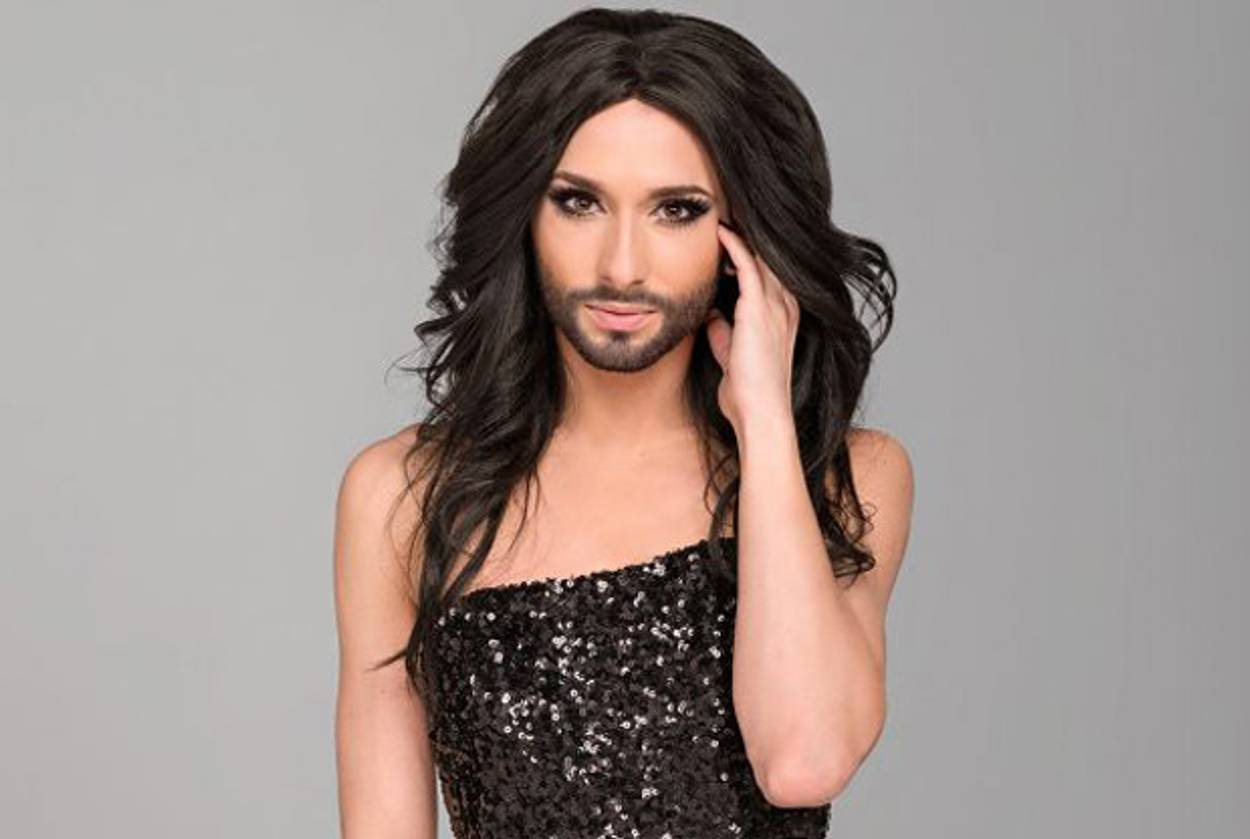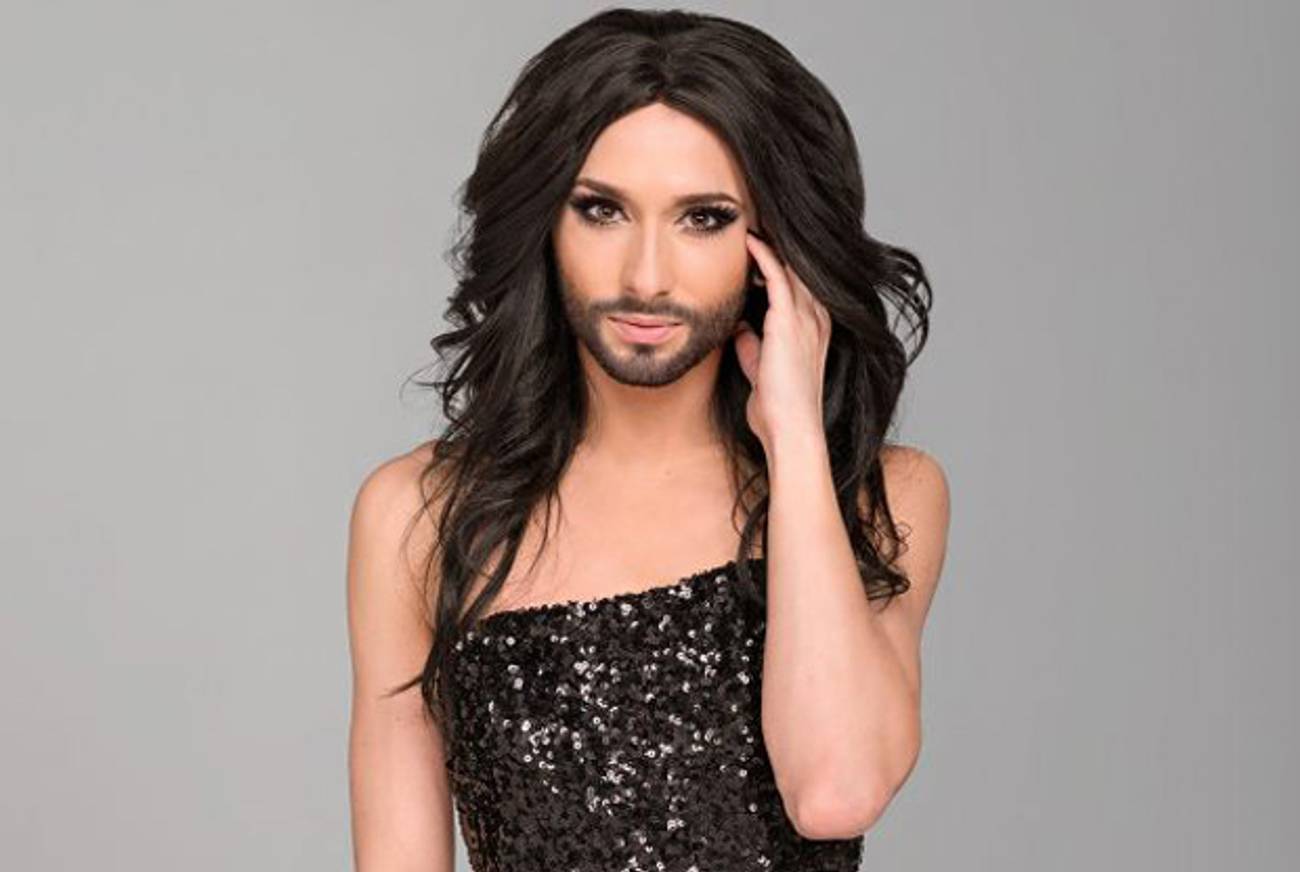Dana International’s Lasting Eurovision Legacy
This year’s transgender winner cites the Israeli performer as an inspiration




Austria’s Conchita Wurst, a transgender performer, won the Eurovision song contest in Copenhagen on Sunday night with a stirring rendition of “Rise Like A Phoenix,” a dramatic James Bond-esque empowerment anthem. Eurovision, for the unfamiliar, is a pan-European Idol of sorts, founded in Switzerland in 1956 with the aim of fostering good relations between countries that just a decade earlier were intent on mutual obliteration. It is so, so bad that it is actually great. To wit: Ireland’s DJ Turkey! Finland’s Hard Rock ‘arockalypse’ Hallelujah! Ukraine’s nonsensical Dancing Lusha Tumbai!
Wurst is a brilliantly talented singer and drag performer who delights in the complexity of her gender-queerness. That is to say: she has luscious hair and a neatly-trimmed beard, and she doesn’t care if you have a problem with that. For conservative pundits, Wurst—who was born Tom Neuwirth in 1988, and describes her male and female personas as a team “working in sync”—was a predictably controversial candidate; one Russian politician described her as a “pervert” (groan) and Eurovision as “Europe’s gay parade.” But she rose to her critics like, well, a phoenix, trouncing the competition in front of a global audience of 180 million.
Wurst owes at least some of her success to Israel’s Dana International, the “transgender singing sensation” who won the contest in 1998 with the catchy, plaintive pop hit Diva. (Yep, Israel—along with Morocco and Azerbaijan—managed to defy geography and gain entry to Eurovision; they also won in 1978 with A-Ba-Ni-Bi and 1979 with Hallelujah.) In an interview with Haaretz, Wurst said, “Oh, I love Dana. She is such a strong woman, and that is inspiring for sure.” (She also expressed a desire to visit Israel soon.) Like Wurst, Dana encountered hostility from conservative viewers in Europe and her home country—which she transcended with her charisma and a very vocal disdain for their transphobia. After her 1998 win, she said: “My victory proves God is on my side. I want to send my critics a message of forgiveness and say to them: Try to accept me and the kind of life I lead. I am what I am and this does not mean I don’t believe in God, and I am part of the Jewish nation.”
I remember being utterly delighted by Dana International’s performance—the hallways of my modern Orthodox high school in Melbourne resounded with the chorus of her song for days, belted out by angsty 14-year-old girls. (“Viva la Diva! Viva Victoria! Cleoopatraaa!”) The biblical, war-torn land of my Zionist education turned and revealed its cosmopolitan, permissive face to me for the first time. Wurst’s victory, perhaps, will have a similarly enlightening effect on European viewers. It’s worth noting that in Armenia, which “recently considered instituting Russian-style laws against so-called gay propaganda,” Wurst was the second-favorite act. Among Russian voters, she ranked third. (And let’s not forget t.A.T.u., the pseudo-lesbian bad-girl duo from Russia who placed third in 2003.) Says German newspaper editor and Eurovision reporter Jan Feddersen, “There’s the idea that Eastern Europe is homophobic, and this proves it’s not true. Conchita Wurst is a success of liberal, democratic Europe.”
Viva la divas, indeed.
Previous: Israeli TV Show To Scout Next Female Pop Group
Related: Dance Fever
Out There
Elissa Goldstein is Tablet’s director of audience development. She also produces Unorthodox. Follow her on Twitter here.